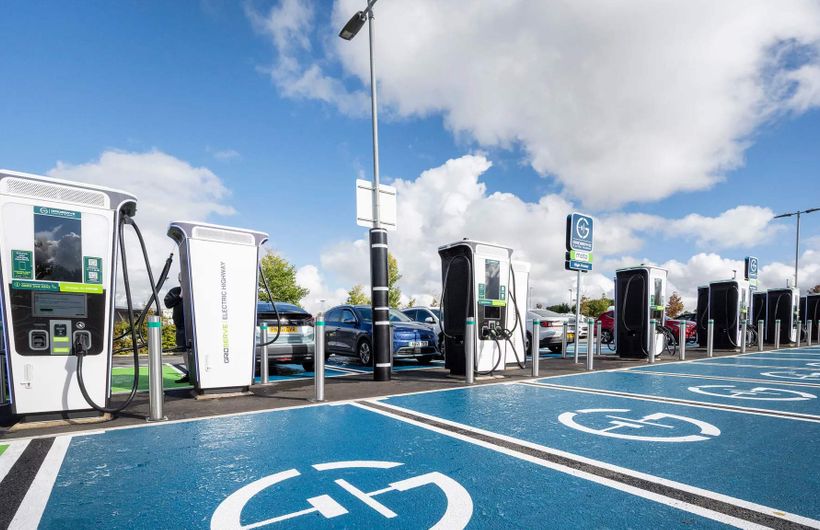National Highways, responsible for motorways and A-roads in England, has announced plans to trial a kinetic energy storage system to meet the growing demand for rapid DC charging. The initiative aligns with the Government’s pledge to improve facilities at the UK’s network of motorway service stations.
The trial will be supported by Levistor, a UK-based company specialising in renewable energy storage. Levistor’s flywheel energy storage system (FESS) provides an alternative to conventional battery energy storage systems (BESS), which rely on chemical processes. Instead, the FESS stores energy mechanically in high-speed spinning flywheels housed in vacuum chambers. When energy is needed, the flywheels slow down, converting their rotational kinetic energy into electricity. This approach minimises frictional and air resistance losses.
Designed to address locations with limited grid capacity, the FESS provides short-term power boosts to enable fast charging, even when the grid is under strain. National Highways states the system can deliver enough energy to add 100 miles of range to an electric car in five minutes, which suggests a power output of more than 150kW.
The first trial, which will run alongside battery and solar installations, will be operational from early next year at a site in Gloucestershire. It is part of a larger National Highway’s programme that is investing in energy storage systems for future expansion of the rapid charging network. The announcement comes as one of the UK’s biggest motorway service operators, Moto Hospitality, appealed to the Government to prioritise the grid infrastructure along the motorway network. The company has asked authorities to declare the UK’s 2,300 mile network a ‘national priority’ as the UK’s adoption of electric vehicles continues to rise.
Christopher Plumb, National Highways’ energy team leader, said: “This kind of innovative solution offers great potential to improve the EV charging network, ultimately accelerating the adoption of electric vehicles and supporting our Net Zero Highways goal.”
The FESS technology also offers advantages over traditional battery systems. While chemical batteries degrade over time, reducing their storage capacity and lifespan, flywheel systems can last 20 years or more. They are also more stable, require less maintenance, and avoid the environmental challenges associated with battery disposal.
Levistor’s CEO, Matt Journee, welcomed the collaboration: “National Highways’ readiness to trial our product highlights the challenges of grid constraints and the need for innovative solutions to ensure a truly nationwide EV rollout. Deploying our systems across the country will give drivers confidence, especially on longer journeys.”
 Motorway service sites need to find solutions to poor grid connections and high demand at peak times
Motorway service sites need to find solutions to poor grid connections and high demand at peak times 










